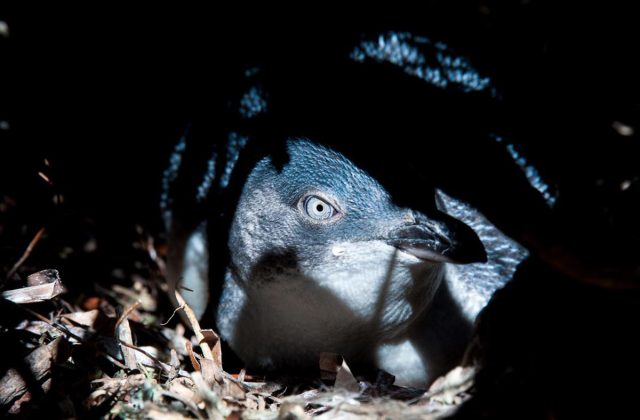
Działalność człowieka zagraża małym pingwinom, zwłaszcza na Granitowej Wyspie, gdzie liczebność gwałtownie spadła. Badania pokazują, że odwaga nie utrudnia opieki rodzicielskiej, ale zwiększa stres. Aby chronić te bezbronne ptaki, niezbędne są wysiłki na rzecz ochrony przyrody i ograniczona ingerencja człowieka.
Niedawno opublikowany artykuł w czasopiśmie Zachowanie podkreśla rosnące zagrożenie dla siedlisk i kolonii pingwinów małych w związku z rozwojem miast i działalnością człowieka.
Naukowcy z[{” attribute=”” tabindex=”0″ role=”link”>Flinders University specializing in animal behavior and bird studies used precise red-light remote video surveillance to investigate how being ‘bolder’ parents influences penguins’ parenting strategies in environments affected by human activity.
“The parent-offspring relationship was the focus of our new research,” says Dr. Diane Colombelli-Négrel, from the Flinders University College of Science and Engineering BirdLab.

“When humans are around a lot, the penguins can be bolder.”
Bold behavior relates to how quickly the animal retreats, or how close they let a predator or threat approach them or a nest.
While the researchers predicted bold individuals would invest less time in parental care, as has previously been observed in other bird species, this was not the case.
“We found a penguin’s boldness has no bearing on its performance as a parent, such as how often it returned to the nest, fed its chicks, or stayed overnight. However, the attack or flight response can put the animals under stress.”
The Impact of Human Activity on Penguins
Nevertheless, the research supports the need for fewer interactions between human visitors and penguins, particularly in vulnerable populations, such as on Granite Island located about 100 km south of Adelaide, which attracts about 800,000 visitors a year as a popular tourist attraction.
The colony of little penguins in South Australia – the focus of the Flinders University study – is fighting to survive. About two decades ago, the penguins numbered 1,600 adults – now there are just 30.

Along with human disturbance, the stark decline in little penguin numbers on Granite Island is also linked to declines in fish numbers, changing environmental conditions, and predators such as fur seals and foxes.
Call for Conservation Efforts
“As the summer holidays approach, we urge the public to stay away from the Granite Island penguin nests, and help save these animals by reporting dangers to their habitat,” says Dr. Colombelli-Négrel.
“Urban developments and human activities are encroaching on our natural habitats at a rapidly increasing rate, placing many species under stress from anthropogenic (human) disturbance.
“Our results suggest that constant exposure to anthropogenic disturbance may have negative effects on little penguins and highlight the importance of limiting interactions between human visitors and penguins.”
Naukowcy dodają, że ważne jest rozważenie, czy zwiększone lub ciągłe zakłócenia ze strony człowieka mogą ostatecznie zmienić proporcje cech osobowości w populacji.
Wnioskują, że długoterminowe skutki selekcji lub plastyczności behawioralnej można uwzględnić we wszelkich przyszłych badaniach nad tolerancją osobowości pingwinów na zakłócenia i sukcesem rozrodczym.
Małe pingwiny (Eudyptula novaehollandiae) to najmniejszy gatunek pingwina na świecie. Zwykle dorastają do około 35 cm i ważą średnio 1,2 kg. Żyją w wodach przybrzeżnych Tasmanii i południowej Australii – m.in. na Granitowej Wyspie w pobliżu Victor Harbor w SA.
Do identyfikacji poszczególnych pingwinów w gnieździe lub w nocy używano wyłącznie latarek świecących na czerwono, ponieważ białe światło może oślepiać pingwiny na kilka dni.
Odniesienie: „Czy odważniejsi rodzice są lepszymi rodzicami w środowiskach zakłóconych antropogenicznie?” Arisha F. Silverlake, Andrew C. Katsis i Diane Colombelli-Négrel, 3 grudnia 2024 r., Zachowanie.
DOI: 10.1163/1568539X-bja10293
Prace te wsparły Waterhouse Club, Friends of Encounter Birds, Komitet Save Granite Island Penguins i Fundacja Sir Marka Mitchella.




